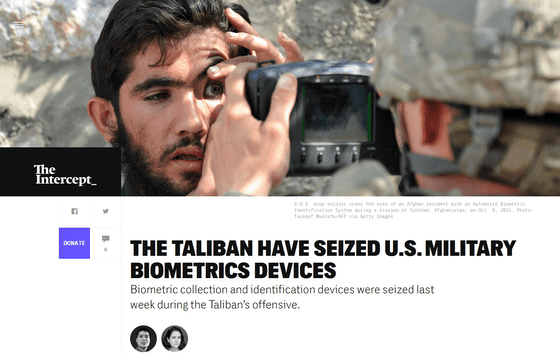Taliban seizes special biometric device 'HIIDE' left by US military

by
It was reported that the biometric device 'HIIDE ', which recognizes individuals by iris recognition and can collate their careers with a large database, has fallen into the hands of the Islamist organization Taliban, which has conquered Afghanistan.
The Taliban Have Seized US Military Biometrics Devices
https://theintercept.com/2021/08/17/afghanistan-taliban-military-biometrics/

'HIIDE' is a portable biometric authentication device that first appeared in 2010. It is a substitute that recognizes an individual with an iris, fingerprint, and face, and wirelessly accesses the built-in database or an external database to collate personal information.

However, according to a U.S. military official, the HIIDE left by the military was taken by the Taliban. It is believed that the United States collected data not only on terrorists and criminals but also on the general public, including Afghans involved in diplomacy, suggesting that the Taliban may identify the personal information of the rebels. increase.

by The US Army
According to military officials, the Taliban may need 'additional tools' to process HIIDE data, but officials said 'the Taliban and Pakistan's honeymoon military integration. The Information Service (ISI) has the tools and both sides may work together. '
Wellton Chan, a former Army intelligence officer and chief technology officer of human rights groups, said, 'I don't think anyone has ever thought about privacy and coping issues when HIIDE is abused. , US troops and diplomatic agencies need to carefully consider whether to redeploy HIIDE in volatile conditions like Afghanistan. '
Related Posts:







